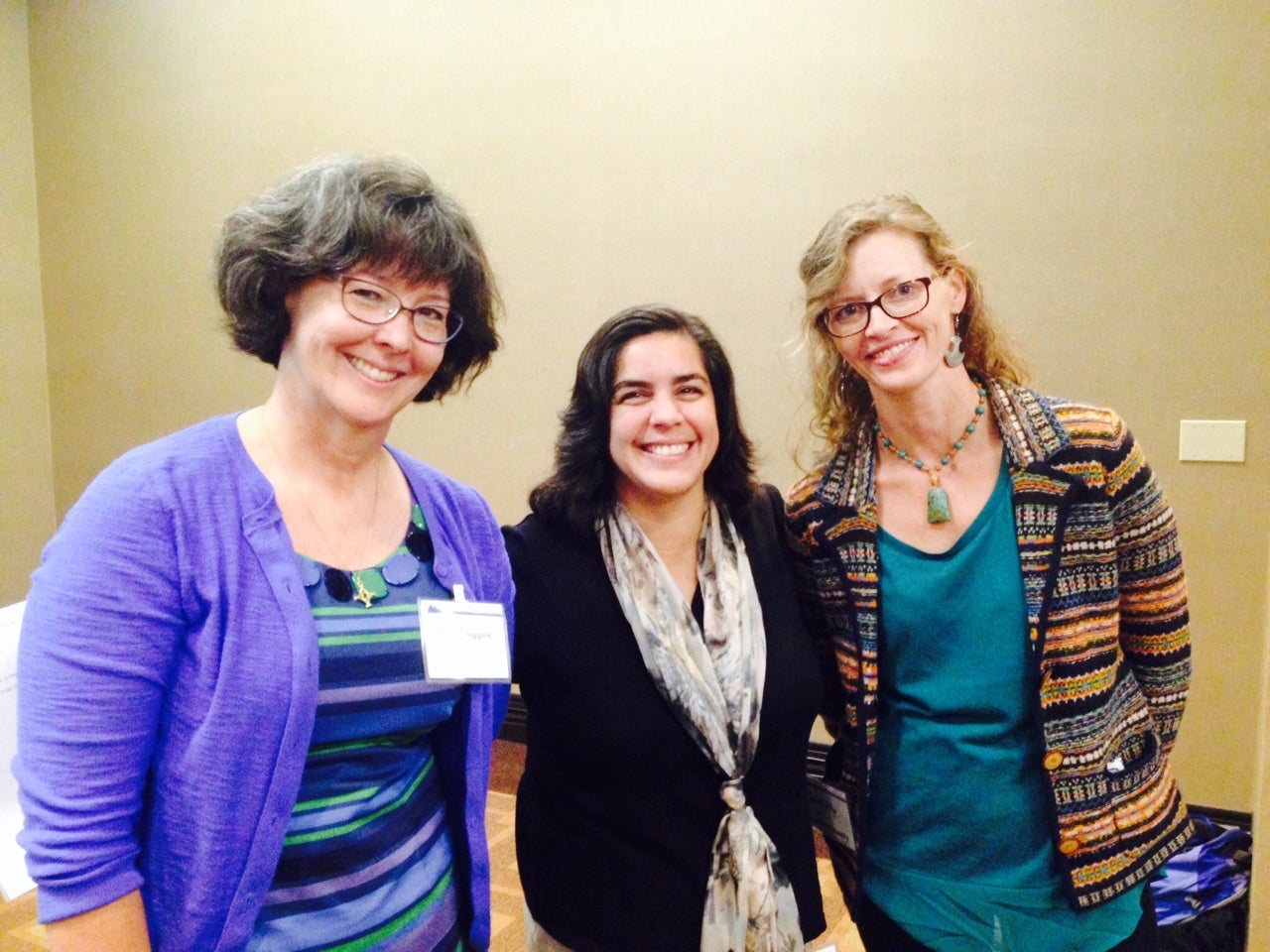
Dolly Higgins, Anser Charter School
Giselle Isbell, Anser Charter School
Jenny Culp, Boise State University
The Northern Rocky Mountain Educational Research Association (NRMERA) held its annual conference in Boise on October 1-2, 2015. The 2015 conference was titled “The Science of Learning and Education”, and Boise State College of Education faculty, doctoral students, and alumni presented on a variety of original research topics.
“Faculty and graduate students from around the Rocky Mountain area presented original research on the science of learning and education in a supportive and collegial environment” said Keith Thiede, Associate Dean for Research and Advanced Programs in the College of Education. “It was exciting for Boise to be the host for a conference dedicated to this kind of quality education research.”
There were 13 Boise State presentations at the 2015 NRMERA conference:
The Ratio Table: A Flexible Model for Decimal Multiplication
Dolly Higgins, Anser Charter School
Giselle Isbell, Anser Charter School
Jenny Culp, Boise State University
Following instruction on decimal multiplication, students exposed to the ratio table answered significantly more questions correctly than those who were not exposed to this model.
Eradicating Misconceptions in Engineering Students
Dazhi Yang, Boise State University
Inanc Senocak, Boise State University
Krishna Pakala, Boise State University
Megan Luy, Boise State University
This study determined a short presentation of non-refutational text does not have impact on misconceptions engineering students hold.
Responsibilities, Supports, and Needs of Science Teacher Leaders
Julianne Wenner, Boise State University
This research explored the responsibilities, supports, and needs of formally designated science teacher leaders in urban elementary schools that have successfully narrowed science achievement gaps.
Affective Experiences in Mathematics
Angela Crawford, Boise State University
M. Brady Webb, Boise State University
This qualitative study investigates students’ affective experiences of mathematics, students’ emotions, mathematics identities, beliefs about their abilities, and mathematics’ importance.
Faculty Advocacy and the Impact on Teacher Candidate Quality
Carolyn Loffer, Boise State University
Meghan Eliason, Boise State University
A.J. Zenkert, Boise State University
Brad Coats, Boise State University
Emphasizing the importance of professional counseling along with academic advising, one teacher education program assigns faculty advocates to candidates as they are admitted to teacher education programs.
Instructional Strategies to Foster Online Classroom Community
Patrick Lowenthal, Boise State University
Jesús Trespalacios, Boise State University
Building community online can improve learning and retention. In this session presenters will share students’ perceptions of community and strategies used to build community online.
Identifying variables important to the success of K-12 students in blended learning
Kerry Rice, Boise State University
Jui-Long Hung, Boise State University
Presents findings from a blended learning program evaluation, using student end-of-course survey data combined with data mining. Findings suggest that is it possible to apply educational data mining techniques in blended learning classrooms to identify key variables important to the success of learners.
Studying Practice and Student Learning: Supporting Beginning Teachers-Professional Capital
Sherry Dismuke, Boise State University
Jennifer Snow, Boise State University
Meghan Eliason, Boise State University
Carolyn Loffer, Boise State University
Following up with elementary program graduates, researchers found a need indicated from new teachers on learning communities based in practice connected to student learning.
Replicated Effects of a Social-Emotional Learning (SEL) Program in Hawaii and Chicago Elementary Schools
Brian Flay, Boise State University
Two RCTs of Positive Action found the program to be effective in improving prosocial values and behavior, reducing negative behaviors, and improving school performance.
The Convergence of Imaginative Play, Literacy and Kindergarten Common Core Language Arts Standards Alta Gracia Salinas-Casper, Boise State University
Sarah Brownsten, Anser Charter School
Maggie Chase, Boise State University
This research suggests imaginative play embedded with literacy experiences, when paired with standards based direct instruction, can serve to facilitate the meeting of kindergarten Common Core English Language Arts standards.
Coherence Principle of Gamification: A Study to Determine the More Effective Approach in an Online Authentic Environment
Kristin Heath, Boise State University
This study examines the effectiveness of the coherence principle and compares it to using gamification to motivate and engage learners in an online, authentic environment.
What Motivates First Generation, Limited Income High School Students to Transition into a Post-Secondary Program of Study
Petya Stoyanova Johnson, Boise State University
Marilena Martello, Boise State University
Belma Sadikovic, Boise State University
This research study aims to find the motivating factors that help first generation, limited income high school students transition into a post-secondary program of study.
Student Use of Models to Divide Fractions
Emily Leckie, Kuna Elementary Instructional Coach
Rebecca Davis, Kuna Elementary Teacher
Wava Kaufman, Kuna Elementary Teacher
Jacob Dobson, Kuna Elementary Teacher
Our research hopes to inform teacher instruction on dividing fractions in 5th grade by identifying what students already know, guiding teachers to a best approach.
Exploring the Cues Behind Teacher Expectations and the Influence of Mindset
M. Brady Webb, Boise State University
This qualitative study investigated the cues teachers use to judge student learning, and examined the influence of a fixed or growth mindset on cue-usage.
The Idaho Reading Indicator as a Predictor of Subsequent Diagnosis of Specific Learning Disabilities
Kimberly Ennis, Boise School District
The IRI is an Idaho state mandated universal reading screen for primary students. The IRI scores were correlated to the subsequent identification of SLD.
NRMERA was established in 1982 and shares education research conducted by faculty and graduates students of colleges and universities in the northern Rocky Mountain geographic area.